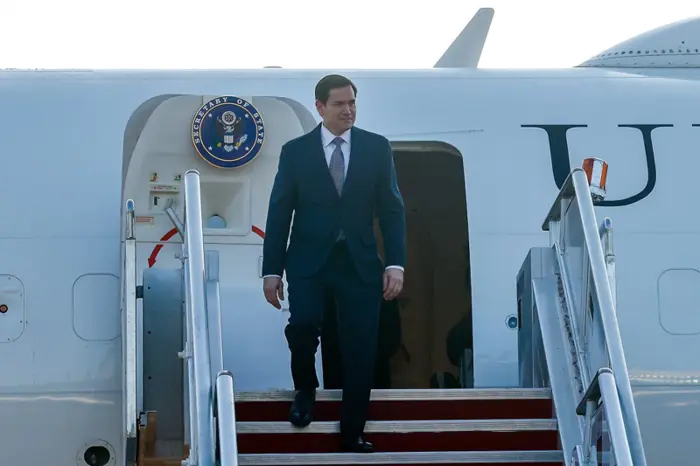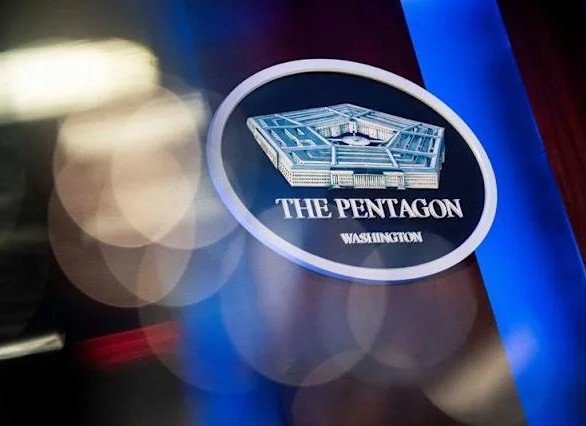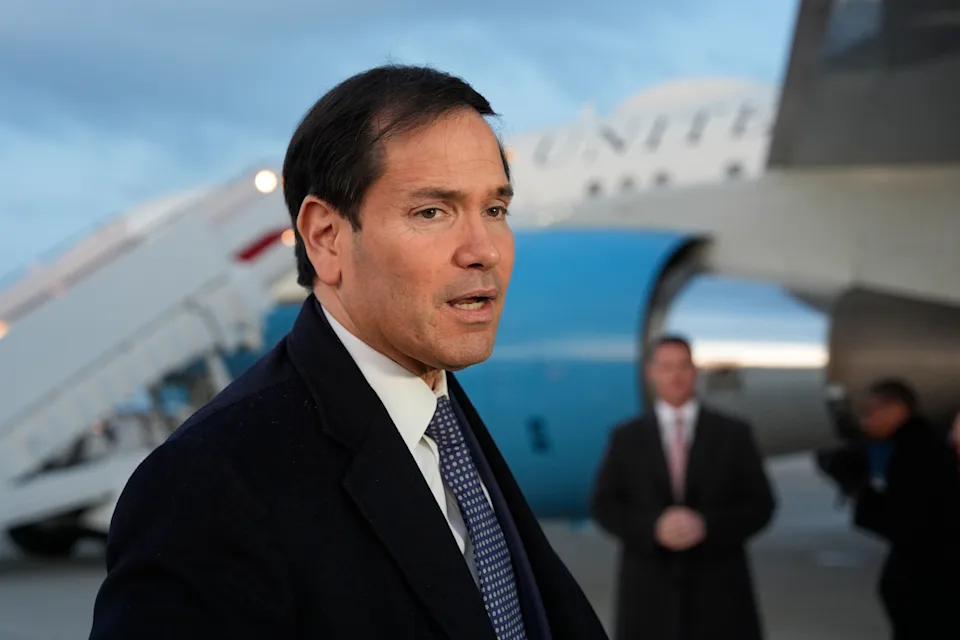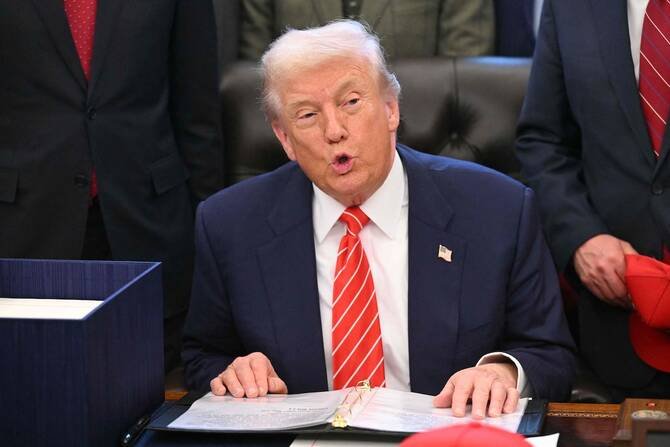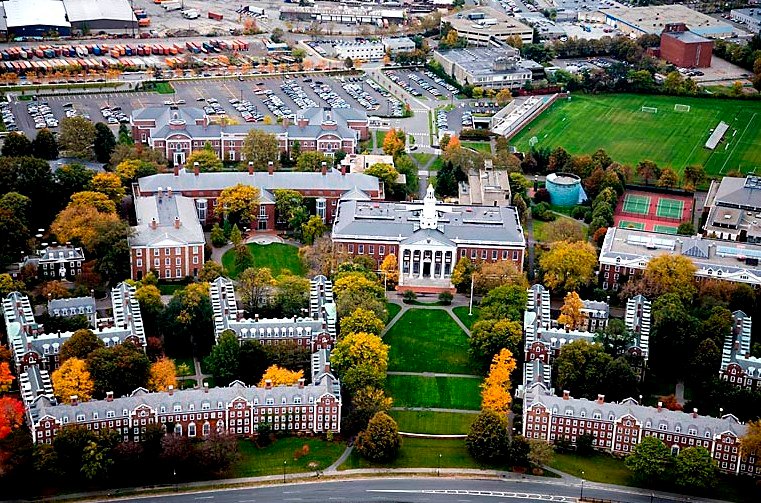Kuala Lumpur, July 10, 2025 – The Europe Today: United States Secretary of State Marco Rubio arrived at Sultan Abdul Aziz Shah Airport (Subang Airport) early Wednesday morning to attend the 58th ASEAN Foreign Ministers’ Meeting (AMM) in the Malaysian capital. Rubio, who touched down at approximately 7:53 a.m., was received by an official welcoming delegation. This marks his first visit to Asia since assuming office as America’s top diplomat.
During his visit, Secretary Rubio is scheduled to engage in a series of high-level meetings and multilateral dialogues. On Thursday evening, he will participate in the ASEAN Post-Ministerial Conference with the United States, highlighting Washington’s continued engagement with Southeast Asia.
At 4:00 p.m., Rubio is expected to sign a memorandum of understanding with Malaysian Foreign Minister Datuk Seri Mohamad Hasan, followed by a meeting with Prime Minister Datuk Seri Anwar Ibrahim at 4:45 p.m. Later in the evening, Rubio is also slated to hold talks with Russian Foreign Minister Sergey Lavrov at 6:00 p.m.
On Friday, July 11, Rubio will take part in the 15th East Asia Foreign Ministers’ Meeting and the 32nd ASEAN Regional Forum (ARF), where regional security and economic cooperation will be central to discussions. He is also expected to conduct bilateral meetings with several Malaysian ministers.
One of the key issues anticipated during Rubio’s bilateral talks with Prime Minister Anwar is the recent U.S. tariff decision. In April, President Donald Trump announced new tariffs affecting multiple countries, including a proposed 24% tariff on Malaysian goods. The implementation was paused for 90 days to allow room for negotiations. However, on Monday, Trump declared final tariff rates effective August 1, setting a 25% rate on products from Malaysia, Japan, South Korea, Tunisia, and Kazakhstan. Other countries such as Cambodia, Thailand, Laos, and Myanmar face higher tariffs ranging from 36% to 40%.
Prime Minister Anwar has indicated that he intends to raise the issue with Secretary Rubio before any final implementation steps are taken. The outcome of these discussions may play a critical role in shaping the future of U.S.-Malaysia trade relations amid broader regional economic shifts.
